Enjoy 10% off our curated selection of client favourites, staff picks, new arrivals, and hidden gems until November 24, 11:59pm EST!
Code: FALLSAVINGS
11 products

- Red Wine
- Malbec
- Vegan-Friendly
- Dry
- Medium Bodied
- 750ml
- 14.5% alc./vol
About the Winery
Bodega Marco Zunino
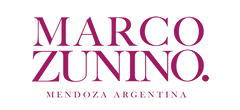 The dream of 4 French partners in Argentina's Mendoza region can be found 200 kilometers from the district capital, in the South of the region, in the town of San Rafael. It's an oasis surrounded by large canyons and crossed by two rivers, Diamante and Atuel, vital for agriculture and tourism in the region.
The dream of 4 French partners in Argentina's Mendoza region can be found 200 kilometers from the district capital, in the South of the region, in the town of San Rafael. It's an oasis surrounded by large canyons and crossed by two rivers, Diamante and Atuel, vital for agriculture and tourism in the region.The arid climate, rugged landscape coupled with the plane trees located along the country roads and weeping willows bordering its rivers that makes the area reminiscent of the midi region in the South of France.
The thirty-hectare vineyard boasts an exceptional site and an idyllic regional climate for wine producing. The low rainfall, vineyard altitude (670m) and high temperature variations are key to the diversity and quality of San Rafael’s terroir and offers the ideal setting for a truly exceptional quality of grape.
Press Reviews
Wine Align
90 points - Sara d'Amato
A bright and cheery malbec made with finesse. The palate is cut and refreshed with a salty component, zesty acidity and mildly sinewy tannins. Sleek with notes of earth, new leather and blackberry. Impressively complex with a memorable finish. Drink now or hold until 2023. Tasted July 2020.
90 points - David Lawrason
This is a very generous, open knit, dense and just slightly sweet malbec with classic aromas of mulberry/raspberry, thyme, a touch of meatiness and oak vanillin. It is very smooth, almost slippery and dense with fine tannin and warm. The length is very good to excellent. Lots here for $20. Tasted June 2021
- Red Wine
- Pinot Noir
- Sustainable
- Dry
- Medium Bodied
- 750ml
- 13% alc./vol
About the Winery
Groupe Bellene
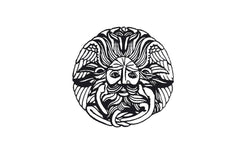
Led by Nicolas Potel in Beaune, Groupe Bellene is composed of the négociant arm Maison Roche de Bellene, the winery arm Domaine de Bellene, and a special back-vintage series under the Collection Bellenum label.
- Maison Roche de Bellene offers a complete range of wines, with an emphasis on individual terroirs from old vines of more than 40 years. All of the growers that Nicolas works with are either organic certified or sustainably farmed.
- Domaine de Bellene represents the wines that are produced and bottled from Nicolas Potel's private vineyard holdings.
- Collection Bellenum is a back vintage series that Nicolas Potel sourced from his friends in the region, offering a magnificent selection of bottled history. The wines have moved only twice in their lives, from the original cellar to Potel's and now to yours!
Nicolas Potel grew up at Volnay's Domaine Pousse d'Or, where his father worked. He trained abroad and returned home in 1996 to build a négociant business and started Maison Nicolas Potel, where he sourced grapes from good parcels, often working with the growers to improve the quality. By 2002, he was making 120 wines from 50 different appellations, and the rest is history!
Press Reviews
Wine Align
91 points - David Lawrason
This is an utterly charming, easy drinking and refined pinot. The hot 2018 vintage has layered in some ripeness with fine aromas of red cherry/raspberry compote, fine shrubby, foresty notes, and subtle oak spice. It is light to medium bodied, very smooth with fine tannin. The length is very good to excellent. Such poise and balance. Best now to 2023. Tasted June 2021.
90 points - Michael Godel
Nothing quite like a “normal” year to craft the most getable and crushable Bourgogne at the behest and passionate hands of Nicolas Potel. Old vines are in the 45 to 50 year range in highest of high density plantings harvested at a “normal” time in this post-modernist, climate adjusted period. That being the 5th to the 13th of September and fruit already ripe, burning the brix and phenol candle at both ends. Nose in to the promise of violets and roses, dive in for crunchy red fruit and some pretty solid tannins. That early yet necessary pick preserved acids with much to say in a pinot noir as tart and spirited as it is enriching of spirit. Despite the high drink-ability factor the structural parts creep up so wait a year for this to settle further. Drink 2022-2025. Tasted June 2021.
90 points - Sara d'Amato
Lovely, bright, crunchy and lively, this entry level Bourgogne from Roche de Bellene rarely disappoints. With a fine, elegant, and well-integrated oak treatment and an invitingly silky texture, this pinot noir is notably compelling and delivers solid value. Excellent length. Tasted June 2021.
- Red Wine
- Gamay
- Biodynamic, Sustainable, Vegan-Friendly, Volcanic
- Dry
- Medium Bodied
- 750ml
- 13% alc./vol
About the Winery
Stéphane Aviron
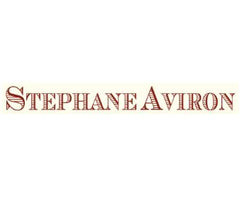
Stéphane Aviron can be considered a pioneer in his approach to winemaking in Beaujolais, however he would just tell you that he’s simply returning to the traditional practices that have always made fantastic Gamay wines. Sustainable viticulture, extremely old vines and classic Burgundian techniques. He focuses on the Beaujolais village crus, all but forgotten gems of vineyards when the nouveau craze took over, which are the best sites for unique, expressive and terroir driven wines. All of the fruit is sourced from old vines (40+ years), so seeing Vieilles Vignes on the label is a rite of passage, not a privilege. Authenticity and a distinctly Beaujolais style of winemaking is what sets Stéphane apart from the rest.
Press Reviews
Wine Align
93 points - David Lawrason
Chenas is one of the smallest appellations of Beaujolais, situated astride more famous Fleurie. Both villages tend to make gamays with both richness and elegance. This sports a ripe nose of cherry/strawberry jam, peony and subtle pepper. It is medium bodied, smooth, firm and refined with gentle tannin. And the length is excellent. Very easy to enjoy now and should hold through 2028. Tasted June 2022
92 points - Megha Jandhyala
This is a fetching gamay with buoyant fruit notes of cherries and raspberries accompanied by aromas of candied violets, rosemary, and snapped twigs. The palate echoes these flavours with subtle notes of cured meat joining the chorus. Tannins are satin smooth and acids are tart. Length is excellent with a delightful fruity finale. Best 2022-2027. Tasted June 2022 by Critic Understudy Megha Jandhyala.
91 points - John Szabo, MS
This is a pleasantly twiggy-herbal-stemmy expression of Chenas with plenty of joyful fruit underpinning the ensemble. I like the fleshy dark cherry fruit on the palate, the silky-firm tannins, and the excellent length in the category. A superior cru; drink or hold late into the decade. Tasted June 2022.
91 points - Michael Godel
Chénas by Aviron is the cru that takes what the Villages offers and simply gives more. By home and vineyard the extrapolation and extension is natural, seamless and duly noted, from dancing fruit, happy palate and now, something viably more. Salumi and wet stone, a modicum of structure, violets in perfume and furthered texture. A positive thickening that stays with the palate, lingers and gracefully moves on. This is gamay to pour for people ready to get it and get at it. Drink 2022-2026. Tasted June 2022.
90 points - Sara d'Amato
An intriguing mix of ripe and jammy along with stemmy and herbal from the warm 2020 vintage. Juicy on the palate with flavours of cherry, bramble, wet leaf and a hint of carbonic. Mouthfilling and fleshy overall with plush red fruit on the finish of very good length. Tasted June 2022.
- Red Wine
- Cinsault, Grenache, Syrah
- Organic, Vegan-Friendly
- Dry
- Full Bodied
- 750ml
- 14.5% alc./vol
About the Winery
Château de Montfaucon

Just across the Rhone river from the beautiful vineyards of Chateauneuf-du-Pape, the Lirac appellation extends itself on the low hills alongside the river. The history of Château de Montfaucon dates back to the 11th century when the castle's first tower was built. The castle's role in history was strategic; the Rhône River was the border between the French Kingdom and the Holy Roman German Empire. Montfaucon was one of many castles and fortresses along the Rhône River constructed to guard the border.
Rodolphe de Pins took over the family estate of Montfaucon in 1995 and subsequently rebuilt the winery and began practicing sustainable agriculture. He honed his winemaking skills in Barossa at Henschke and Vieux Telegraphe in Châteauneuf du Pape before returning to Lirac, so needless to say, his familiarity with the local varieties is well established.
Press Reviews
Wine Align
92 points - David Lawrason
From a leading estate in the small, excellent Lirac appellation this is a lovely, tender blend of grenache, syrah and 10% cinsault. It has a very lifted, fragrant nose of red cherry, red rose, peppery spice and a pleasant charcuterie note. It is very rounded, supple and open knit with warm alcohol powering the flavours. Tannins are very fine. The length is excellent. Drinking very well now. Tasted April 2024
- Red Wine
- Bobal
- Sustainable, Vegan-Friendly
- Dry
- Medium Bodied
- 750ml
- 14% alc./vol
About the Winery
Agrícolas de Vinos La Higuera
Agrícola de Vinos La Higuera’ is a small project founded in 2017 by two friends, Javier del Blanco and Jorge Navascues, to join their knowledge in the wine industry while working separately with top Estates from different regions all over Spain.
The aim is to nurture and craft honest wines that will honor their origins, with great value and genuine quality, expressing the purity of the grape variety and the environment they are grown in.
Press Reviews
WineAlign
90 points - Michael Godel
A varietal bobal from Utiel-Requena where 34,000 hectares in Valencia between the two neighbouring towns of Utiel and Requena are mostly concerned with this unique variety. Here is a firm and medium-bodied example with a plenary meeting of root-earthy fruit and exemplary acidity. Not exactly tannic but structured in its own parochial way to live non-plussed for a few years. This is quite a youthful example with more getable juiciness than many. Drink 2023-2025. Tasted February 2023.
90 points - Sarah d'Amato
A fruity, juicy red smartly packaged with a modern-utilitarian label from the Valencian sub-appellation of Utiel Requena where the bobal variety dominates in both red and rosé forms. Mid-weight, supple and easy-drinking with white pepper spice, and bramble along with wafting notes of botanicals and mint. Lightly reduced in a very pleasant fashion. Would benefit from a slight chill. Engaging and convivial with plenty of food pairing potential. Ready to drink. Tasted February 2023.
90 points - Megha Jandhyala
This 100% bobal was sourced from a single vineyard called La Pinada planted in 1958 in the Valencian sub-appellation of Utiel-Requena. It has a sense of freshness, candour, and authenticity that is appealing. I like the ripe red fruit flavours including plump and juicy strawberries, raspberries, and cherries, accompanied by notes of savoury herbs and earthy tones. The palate is medium-bodied and fresh, with juicy acids and fine tannins, while alcohol is well-integrated (13.5%, per the label). Ready to drink, this bobal is best enjoyed lightly chilled. Tasted February 2023 by Critic Understudy Megha Jandhyala.
- Red Wine
- Cabernet Sauvignon
- Sustainable, Vegan-Friendly
- Dry
- Medium Bodied
- 750ml
- 13.63% alc./vol
About the Winery
Ramsay
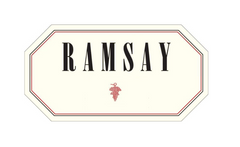 Since its modest beginnings, the Kent Rasmussen Winery has evolved into one of the most important Pinot Noir producers in the Carneros region, but Kent was always keen to focus on other varietals and other AVAs. So, starting in 1989, Kent and Celia Rasmussen launched a second brand, Ramsay, which focuses on Sonoma, North Coast and Napa Valley. Kent chooses grapes and blends with great care to achieve stylistic continuity, year in, year out and to create high-value, finely crafted wines.
Since its modest beginnings, the Kent Rasmussen Winery has evolved into one of the most important Pinot Noir producers in the Carneros region, but Kent was always keen to focus on other varietals and other AVAs. So, starting in 1989, Kent and Celia Rasmussen launched a second brand, Ramsay, which focuses on Sonoma, North Coast and Napa Valley. Kent chooses grapes and blends with great care to achieve stylistic continuity, year in, year out and to create high-value, finely crafted wines.Press Reviews
Wine Enthusiast
91 points - Wine Enthusiast
This wine offers plush and supple aromas of blackberry jam, blueberry and pepperjam. Other notes waft through, including boysenberry, toffee, star anise, chinese five spice and toasty oak. Layers of sweet cigar, dried black cherry and bittersweet chocolate bring it all together for a mouthwatering finish. Best Buy. —T.P.
Tasting Panel Magazine
91 points
Plush tannins and ripe boysenberry are surrounded by mocha-coffee and dried brush. Well balanced, with woodsy tones on the chewy finish.
- Red Wine
- Nero d'Avola
- Natural, Organic, Vegan-Friendly
- Dry
- Medium Bodied
- 750ml
- 13.00% alc./vol
About the Winery
Cantine Barbera
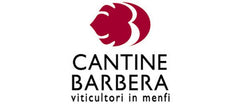
Cantina Barbera is located in the Menfi Coast, on the west coast of Sicily. The vineyards are about one mile from the Mediterranean Sea: an uncontaminated deep blue sea, facing South, where low cliffs and sandy dunes create a beautiful environment protected by the Belice River Natural Reservation Fund.
A third generation farmer, Marilena Barbera farms the Inzolia that her grandfather planted in the 20's, just as she attends to the native varietals that are the new frontier of her own generation: Perricone, Nerello, Alicante, Nero d'Avola and Grillo. Marilena makes her wines praticticing organic farming and natural winemaking, while paying utmost respect to Menfi's terroir.
"At the winery, I chose to work only with spontaneous fermentations and to adopt non invasive winemaking practices, in order to respect the unique personality of Sicilian native grape varieties and the beautiful land to which they belong."
- Red Wine
- Mourvèdre / Monastrell, Syrah
- Natural, Organic, Vegan-Friendly
- Dry
- Full Bodied
- 750ml
- 13.5% alc./vol
About the Winery
Domaine Frédéric Brouca

Frédéric grew up in Normandy and met his Canadian wife Elaine at university in Lille, Northern France. They live a nomadic lifestyle (Canada, India, Singapore and USA) though Frédéric spends about half of his time in Faugères. Since early age, Frédéric had a calling for farming and the fierce desire to become a winegrower. After completing a Masters Degree in Finance in 2001, Frédéric went back to college for a Sommelier diploma and started his career as a Burgundy wine broker.
In late 2012, Frédéric and Elaine were fortunate to take over 25 acres of old vines in Faugères, organically farmed for twenty years and deeply rooted in schist soils.
2013 was the inaugural vintage for Domaine Frédéric Brouca. In his modest winery in the village of Laurens, Frédéric is creating a new vision for Faugères wines; fresh, vibrant and made without artifice. Nothing revolutionary, simply returning to our grandparent's ideology of farming and winemaking to craft 'Vins Vivants'. The Faugères Appellation is in the heart of Languedoc in the Hérault department. Here, winemaking dates back to the Greek times and was developed during the Roman Era. It wasn't until the early 1900's, however, that the wines became more widely known for its unique schist soils and moderate Mediterranean climate. These villages are heavily reliant on wine as an important part of their culture and economy.
The area is stunning with mountain views and close proximity to the Mediterranean Sea (20 miles / 30 kms). Faugères has a long history of responsible farming. It boasts the highest percentage of organic vineyards for any AOC in all of France with almost 50% of farmers making the choice.
Press Reviews
Wine Align
93 points - John Szabo
Clos Sauveplan is a blend of about 3/4 high density planted mourvèdre and the balance in half-century-old syrah from the lieu-dit of the same name, a plateau in the Faugères AOC in southern France. It's showing beautifully at the moment, rich, redolent of fresh black forest fruits, blackberry coulis, wild violets and cracked black peppercorn, really quite a tour de force. The palate is broad but fresh, impeccably balanced and so lively considering the warm vintage, declared at 12.5% alcohol but coming across as riper and denser than the numbers would imply. Tannins are silky and resolving nicely, and length, depth, and ultimately complexity, are excellent. One of Brouca's best to date I'd say; drink or hold a half dozen years - the stuffing augurs well for development. Tasted January 2024.
92 points - Michael Godel
The source for this co-ferment of mourvèdre and syrah is a “clos,” meaning an isolated walled vineyard in a lieu-dit called “Sauveplane”, plateau at the eastern limit of the Faugères appellation. A mix of 20 and 40 year-old vines, volcanic soils, some whole cluster fermentation. Exotically spiced, sweetly volatile. Low-level Brettanomyces, so bloody Faugères, exemplary and expected for a wine to speak up on behalf of this particular sense of place. The kind of Languedoc red that sommeliers and naturalists will share and swig with reckless abandon while those who have never tried this style and origin may be left to wonder in confounded disarray. Just know that this is very correct for producer, style and place. Drink 2024-2027. Tasted January 2023.
91 points - Sara d'Amato
From old vines farmed with minimal intervention on the plateau of "Sauveplane", a lieu-dit on the eastern edge of Faugères. Spontaneously co-fermented syrah and mourvèdre grapes are left unfined and unfiltered in the low-interventionist style of Fredric Brouca. Subsequently aged 13 months in oak resulting in very gentle spice and pleasantly mellow tannins. Offers a notable sense of place and varietal character. Relatively speaking, the wine is quite clean and still exhibits plenty of fresh fruit and very good length. Tasted January 2024.
- Red Wine
- Pinotage
- Sustainable, Vegan-Friendly
- Dry
- Residual Sugar: 1.5 g/l
- Medium Bodied
- 750ml
- 13% alc./vol
About the Winery
Radford Dale
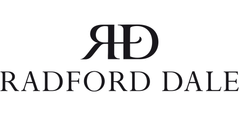 Radford Dale and The Winery of Good Hope are two brands made by the same people, in the same winery. The team behind these wineries has been an industry leader since the 1990s in chemical free farming, and more recently in low and no sulfur winemaking. They are a founding member of PIWOSA (Premium Independent Wineries of South Africa) which sets ethical, environmental and social uplift standards. Recognizing the social inequality present in South Africa Radford Dale has also set up a trust called Land of Hope to help facilitate bright futures for children, focusing heavily on education.
Radford Dale and The Winery of Good Hope are two brands made by the same people, in the same winery. The team behind these wineries has been an industry leader since the 1990s in chemical free farming, and more recently in low and no sulfur winemaking. They are a founding member of PIWOSA (Premium Independent Wineries of South Africa) which sets ethical, environmental and social uplift standards. Recognizing the social inequality present in South Africa Radford Dale has also set up a trust called Land of Hope to help facilitate bright futures for children, focusing heavily on education.
Alex Dale who owns and manages both projects is an Englishman who grew up spending summers in Burgundy, France. He moved there in his late teens to follow a passion for winemaking and also opened a wine bar in Beaune. He lived in Burgundy for many years before moving to South Africa in 1998, starting Radford Dale with Ben Radford, an Australian. The idea was to produce wines using modern techniques and technology with a healthy respect for tradition, something Alex came to understand well while living in Burgundy.
Wines are made with minimal intervention in order to best express each vineyard’s individuality.Press Reviews
Wine Align
91 points - Michael Godel
Four months have done right by this pinotage and the beauty lies in how such an example could change 99 percent of minds as to what the grape from South Africa can truly and effectively be. No coffee, mocha or java in any respect, no silly or cloying sweet oak but simply fruit. Bright and clean expressing clear varietal skies. Pinotage can be like this and you need to try this wine to become a believer. Last tasted November 2024.
As per the recent (five-plus) year trending style for (better quality) Cape pinotage there is a lighter sense of hue, extract and texture to Radford Dale’s Vinum bottling. The aromas could not be confused or exchanged for any other grape mind you but red fruit prevails and earthiness grounds the wine at every point of exchange. No shock that winemaker Jacques de Klerk would do right by pinotage and provide the stage it needs to succeed. Tons of spice all over the finish. Drink 2025-2028. Tasted July 2024.
91 points - John Szabo, MS
This is a remarkably delicate and perfumed pinotage, pale of hue and redolent of still-fresh red berry fruit, notably absent the frequent rusticity displayed by the variety, as well as oak influce. Tannins are light and delicate and acids crunchy and juice, driving saliva and desire for additional sips, and the finish lingers delicately but impressively, the work of a hand and savvy hand. This will be a revelation to anyone who's exposure to pinotage was limited to the more commercial, sweet coffee-chocolate-flavoured versions, or the ultra old style reminiscent of rusty nails and rubber boots 0 this is nothing like that. Tasted November 2024.
- Red Wine
- Mourvèdre / Monastrell, Syrah
- Natural, Organic, Vegan-Friendly
- Dry
- Full Bodied
- 750ml
- 13.5% alc./vol
About the Winery
Domaine Frédéric Brouca

Frédéric grew up in Normandy and met his Canadian wife Elaine at university in Lille, Northern France. They live a nomadic lifestyle (Canada, India, Singapore and USA) though Frédéric spends about half of his time in Faugères. Since early age, Frédéric had a calling for farming and the fierce desire to become a winegrower. After completing a Masters Degree in Finance in 2001, Frédéric went back to college for a Sommelier diploma and started his career as a Burgundy wine broker.
In late 2012, Frédéric and Elaine were fortunate to take over 25 acres of old vines in Faugères, organically farmed for twenty years and deeply rooted in schist soils.
2013 was the inaugural vintage for Domaine Frédéric Brouca. In his modest winery in the village of Laurens, Frédéric is creating a new vision for Faugères wines; fresh, vibrant and made without artifice. Nothing revolutionary, simply returning to our grandparent's ideology of farming and winemaking to craft 'Vins Vivants'. The Faugères Appellation is in the heart of Languedoc in the Hérault department. Here, winemaking dates back to the Greek times and was developed during the Roman Era. It wasn't until the early 1900's, however, that the wines became more widely known for its unique schist soils and moderate Mediterranean climate. These villages are heavily reliant on wine as an important part of their culture and economy.
The area is stunning with mountain views and close proximity to the Mediterranean Sea (20 miles / 30 kms). Faugères has a long history of responsible farming. It boasts the highest percentage of organic vineyards for any AOC in all of France with almost 50% of farmers making the choice.
Press Reviews
Wine Align
93 points - John Szabo
Clos Sauveplan is a blend of about 3/4 high density planted mourvèdre and the balance in half-century-old syrah from the lieu-dit of the same name, a plateau in the Faugères AOC in southern France. It's showing beautifully at the moment, rich, redolent of fresh black forest fruits, blackberry coulis, wild violets and cracked black peppercorn, really quite a tour de force. The palate is broad but fresh, impeccably balanced and so lively considering the warm vintage, declared at 12.5% alcohol but coming across as riper and denser than the numbers would imply. Tannins are silky and resolving nicely, and length, depth, and ultimately complexity, are excellent. One of Brouca's best to date I'd say; drink or hold a half dozen years - the stuffing augurs well for development. Tasted January 2024.
92 points - Michael Godel
The source for this co-ferment of mourvèdre and syrah is a “clos,” meaning an isolated walled vineyard in a lieu-dit called “Sauveplane”, plateau at the eastern limit of the Faugères appellation. A mix of 20 and 40 year-old vines, volcanic soils, some whole cluster fermentation. Exotically spiced, sweetly volatile. Low-level Brettanomyces, so bloody Faugères, exemplary and expected for a wine to speak up on behalf of this particular sense of place. The kind of Languedoc red that sommeliers and naturalists will share and swig with reckless abandon while those who have never tried this style and origin may be left to wonder in confounded disarray. Just know that this is very correct for producer, style and place. Drink 2024-2027. Tasted January 2023.
91 points - Sara d'Amato
From old vines farmed with minimal intervention on the plateau of "Sauveplane", a lieu-dit on the eastern edge of Faugères. Spontaneously co-fermented syrah and mourvèdre grapes are left unfined and unfiltered in the low-interventionist style of Fredric Brouca. Subsequently aged 13 months in oak resulting in very gentle spice and pleasantly mellow tannins. Offers a notable sense of place and varietal character. Relatively speaking, the wine is quite clean and still exhibits plenty of fresh fruit and very good length. Tasted January 2024.
- Red Wine
- Gamay
- Volcanic
- Dry
- Residual Sugar: 2.00 g/l
- Light Bodied
- 750ml
- 13.50% alc./vol
About the Winery
Domaine du Château de La Chaize
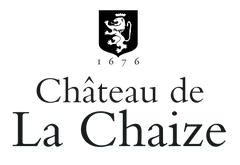
Château de La Chaize is among the oldest, most historic estates in Burgundy’s Beaujolais region. Cared for by the same family for nearly three and a half centuries, the estate has been passed on to new owners, the Gruy family, who are equally committed to managing the estate with the utmost care, while implementing an ambitious environmental plan. Among the many initiatives is the conversion of all vineyards to organic farming, the adoption of precision viticulture, reducing carbon their carbon footprint, and recycling every by-product from viti- and vinicultural activity, to achieve zero waste.
Founded in 1670 by the seneschal of Lyon François de la Chaize d’Aix, the main Château de la Chaize building and gardens were completed by Jules-Hardouin Mansart and André le Nôtre, respectively architect and gardener of the Château de Versailles. Château de la Chaize is among the oldest, most historic estates in Burgundy’s Beaujolais region. Boasting over 250 acres of vineyards, it is also one of the largest. It is today considered one of the most innovative estates in Burgundy. Among its forward- thinking practices is the adoption of eco-friendly farming techniques, commonly referred to as Agriculture Raisonnée. Chemical treatments have been reduced to a strict minimum, for example, and the growing of grass between rows has been re-introduced to enrich the soil and reduce erosion.
Press Reviews
Wine Advocate
93 Points - William Kelly
The 2020 Côte de Brouilly Brûlhier has turned out very well, delivering aromas of cherries, blackberries, sweet spices and peonies, followed by a medium to full-bodied, velvety and vibrant palate that's concentrated and complete, with lively acids and ripe structuring tannins. As readers may remember, it's derived from a southeast-facing site characterized by blue rock and numbers among the prime lieux-dits of the appellation.










